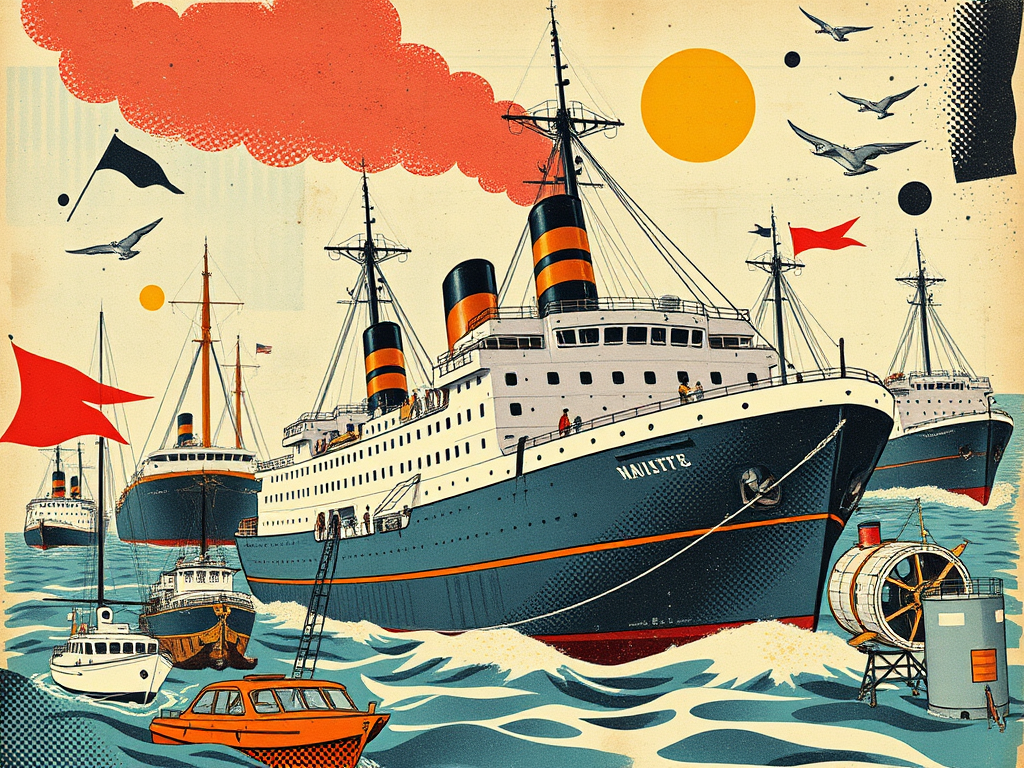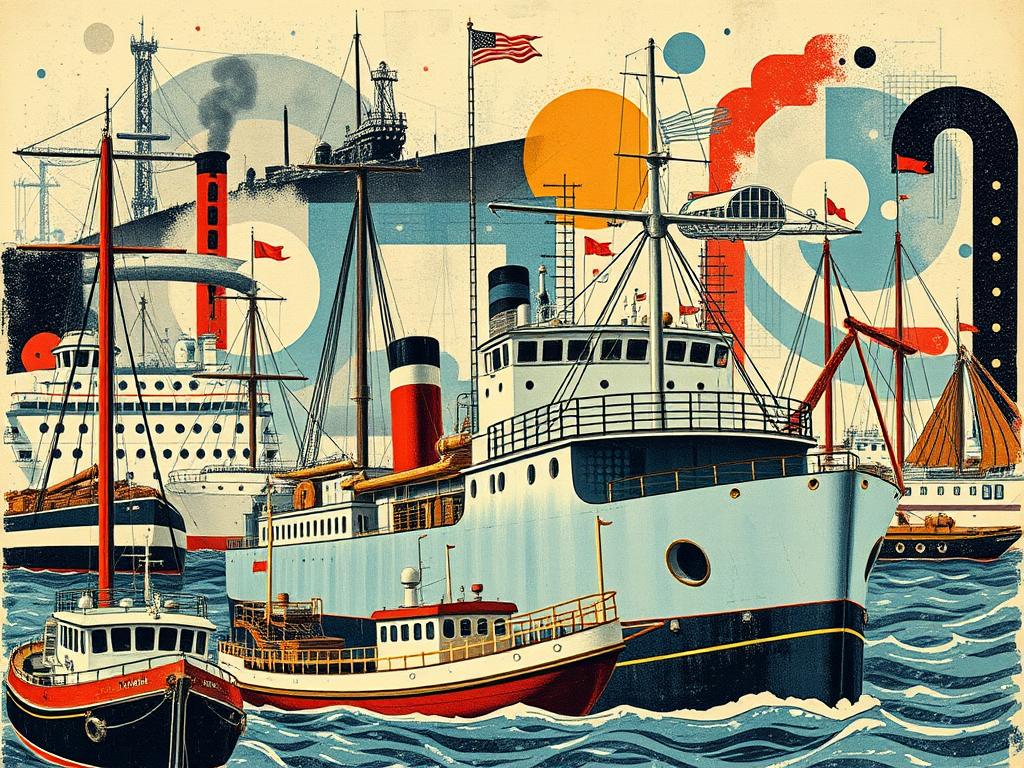
Marine Tech and Innovation: Modernizing Greece’s Maritime Industry
Table of Contents:
- Introduction
- The Current State of Greece’s Maritime Industry
- Emerging Marine Technologies
- Innovation in Shipbuilding and Design
- Digital Transformation in Maritime Operations
- Environmental Sustainability Initiatives
- Challenges and Opportunities
- The Future of Greece’s Maritime Sector
- Conclusion
- FAQs
1. Introduction
Greece has long been recognized as a maritime powerhouse, with a rich seafaring history dating back thousands of years. Today, the country’s maritime industry continues to play a crucial role in its economy, contributing significantly to GDP and employment. However, in an era of rapid technological advancement and increasing environmental concerns, the Greek maritime sector faces both challenges and opportunities for modernization and innovation.
This article explores the current state of Greece’s maritime industry, the emerging marine technologies shaping its future, and the innovative approaches being adopted to maintain the country’s competitive edge in the global maritime landscape. We’ll delve into the digital transformation of maritime operations, sustainability initiatives, and the potential for Greece to become a hub for marine tech innovation in the Mediterranean region.
2. The Current State of Greece’s Maritime Industry
Greece’s maritime industry is a cornerstone of the national economy, with the country’s merchant fleet ranking first in the European Union and fourth globally in terms of cargo-carrying capacity. The sector accounts for approximately 7% of Greece’s GDP and employs over 200,000 people directly and indirectly.
Key statistics of Greece’s maritime industry:
- Greek-owned fleet: Over 4,000 vessels
- Total capacity: Approximately 350 million deadweight tons
- Average fleet age: 10.9 years (below global average)
- Annual contribution to economy: €11 billion
Despite its strong position, the Greek maritime industry faces several challenges, including:
- Intense global competition
- Fluctuating freight rates
- Stringent environmental regulations
- Aging infrastructure in some ports
- Need for skilled workforce in emerging technologies
To address these challenges and maintain its competitive edge, Greece’s maritime sector is increasingly turning to innovation and technology adoption.
3. Emerging Marine Technologies
The maritime industry is undergoing a technological revolution, and Greece is positioning itself at the forefront of this transformation. Several emerging technologies are reshaping the sector:
3.1 Autonomous and Remote-Controlled Vessels
Autonomous and remote-controlled ships represent a significant leap forward in maritime technology. Greek shipping companies are investing in research and development of these technologies, which promise to enhance safety, reduce operational costs, and improve efficiency. Key developments include:
- Prototype autonomous vessels for short-sea shipping routes
- Remote-controlled tugboats for port operations
- AI-powered navigation systems for enhanced collision avoidance
3.2 Internet of Things (IoT) and Big Data Analytics
IoT devices and big data analytics are revolutionizing fleet management and predictive maintenance in the Greek maritime industry. These technologies enable:
- Real-time monitoring of vessel performance and fuel consumption
- Predictive maintenance to reduce downtime and repair costs
- Optimization of route planning and weather routing
- Enhanced cargo tracking and supply chain visibility
3.3 Blockchain Technology
Blockchain is being explored for its potential to streamline maritime documentation, enhance transparency, and improve supply chain efficiency. Applications in the Greek maritime sector include:
- Digital bills of lading and smart contracts
- Secure and transparent vessel registration processes
- Improved traceability of goods and reduction of fraud
4. Innovation in Shipbuilding and Design
Greek shipyards and naval architects are at the forefront of innovative ship design and construction techniques. Key areas of focus include:
4.1 Advanced Materials and 3D Printing
The use of advanced materials and 3D printing technology is revolutionizing shipbuilding in Greece. Benefits include:
- Lighter, stronger, and more durable vessel components
- Reduced construction time and costs
- Improved fuel efficiency and environmental performance
- On-demand production of spare parts, reducing inventory costs
4.2 Green Ship Design
Greek naval architects are pioneering eco-friendly ship designs to meet stringent environmental regulations and reduce the carbon footprint of maritime operations. Innovations include:
- Hull optimization for improved hydrodynamics and fuel efficiency
- Integration of renewable energy systems (solar, wind) into vessel design
- Development of zero-emission ships powered by hydrogen or ammonia
5. Digital Transformation in Maritime Operations
The Greek maritime industry is embracing digital transformation to enhance operational efficiency, safety, and competitiveness. Key areas of digital innovation include:
5.1 Smart Ports and Digital Twins
Greek ports are investing in smart technologies and digital twin solutions to optimize operations and improve cargo handling efficiency. Features include:
- AI-powered berth allocation and yard planning
- Automated container handling systems
- Real-time monitoring of port operations through digital twin technology
- Integration with blockchain-based documentation systems
5.2 Virtual and Augmented Reality in Training
Greek maritime academies and shipping companies are leveraging VR and AR technologies to enhance training programs and simulate complex scenarios. Applications include:
- Immersive navigation and engine room simulations
- Virtual safety drills and emergency response training
- AR-assisted maintenance and repair procedures
6. Environmental Sustainability Initiatives
The Greek maritime industry is taking significant steps towards environmental sustainability, driven by both regulatory requirements and a commitment to responsible operations. Key initiatives include:
6.1 Alternative Fuels and Propulsion Systems
Greek shipping companies are investing in cleaner fuel alternatives and innovative propulsion systems, including:
- LNG-powered vessels and bunkering infrastructure
- Exploration of hydrogen and ammonia as zero-emission fuels
- Development of hybrid electric propulsion systems
- Installation of exhaust gas cleaning systems (scrubbers)
6.2 Energy Efficiency and Emissions Reduction
Efforts to improve energy efficiency and reduce emissions in the Greek fleet include:
- Implementation of Energy Efficiency Design Index (EEDI) for new ships
- Adoption of slow steaming practices to reduce fuel consumption
- Installation of energy-saving devices (e.g., Flettner rotors, air lubrication systems)
- Use of advanced hull coatings to reduce drag and fuel consumption
7. Challenges and Opportunities
While the Greek maritime industry is making significant strides in technological innovation, it also faces several challenges:
7.1 Challenges
- High initial investment costs for new technologies
- Regulatory uncertainty surrounding emerging technologies
- Cybersecurity risks associated with increased digitalization
- Skill gap in the workforce for operating advanced technologies
- Balancing innovation with traditional maritime practices
7.2 Opportunities
Despite these challenges, the Greek maritime sector has numerous opportunities for growth and innovation:
- Potential to become a Mediterranean hub for marine tech innovation
- Expansion into new markets through technological leadership
- Improved operational efficiency and cost reduction through digital transformation
- Enhanced environmental performance and compliance with regulations
- Attraction of young talent to a modernized and technologically advanced industry
8. The Future of Greece’s Maritime Sector
As Greece’s maritime industry continues to evolve, several trends are likely to shape its future:
- Increased adoption of AI and machine learning for predictive analytics and decision-making
- Further development of autonomous shipping technology and regulatory frameworks
- Greater integration of renewable energy sources in maritime operations
- Expansion of smart port networks and digital logistics solutions
- Continued focus on environmental sustainability and decarbonization efforts
The Greek government is also playing a crucial role in supporting the industry’s modernization through initiatives such as:
- Investment in maritime education and training programs focused on new technologies
- Creation of innovation hubs and incubators for marine tech startups
- Tax incentives for companies investing in green shipping technologies
- Collaboration with international partners on research and development projects
9. Conclusion
Greece’s maritime industry stands at the cusp of a technological revolution that promises to reshape its future. By embracing innovation in marine technology, shipbuilding, digital operations, and sustainability, the sector is positioning itself to maintain its global leadership position in the face of increasing competition and environmental challenges.
The successful adoption of these technologies will require continued investment, collaboration between industry stakeholders, and a commitment to workforce development. As the industry evolves, it will create new opportunities not only for established shipping companies but also for tech startups, researchers, and skilled professionals.
Greece’s rich maritime heritage, combined with its growing focus on innovation, positions the country well to lead the next wave of advancements in the global maritime industry. As these technologies mature and become more widely adopted, they will not only enhance the competitiveness of Greek shipping but also contribute to a more efficient, safe, and sustainable maritime sector worldwide.
For those interested in the broader economic landscape of Greece, including its thriving maritime sector, exploring opportunities in Greek real estate can provide valuable insights. Consider looking into property for sale greece to understand how the country’s economic developments are reflected in its property market.
10. FAQs
- Q: How is Greece’s maritime industry adapting to environmental regulations?
A: Greece’s maritime industry is adapting to environmental regulations through various initiatives, including investing in LNG-powered vessels, exploring zero-emission fuels like hydrogen and ammonia, implementing energy efficiency measures, and developing green ship designs. The industry is also focusing on reducing emissions through slow steaming practices and the installation of exhaust gas cleaning systems.
- Q: What role does blockchain technology play in Greece’s maritime sector?
A: Blockchain technology is being explored in Greece’s maritime sector for various applications, including streamlining documentation processes, enhancing supply chain transparency, and improving vessel registration procedures. It has the potential to reduce fraud, increase efficiency in transactions, and provide secure, tamper-proof records for the industry.
- Q: How are Greek ports embracing digital transformation?
A: Greek ports are embracing digital transformation through the implementation of smart port technologies and digital twin solutions. This includes AI-powered berth allocation and yard planning, automated container handling systems, real-time monitoring of port operations, and integration with blockchain-based documentation systems to improve overall efficiency and reduce turnaround times.
- Q: What opportunities does marine tech innovation present for Greece’s economy?
A: Marine tech innovation presents numerous opportunities for Greece’s economy, including the potential to become a Mediterranean hub for marine technology, attracting foreign investment and talent. It also opens up possibilities for the growth of tech startups, creation of high-skilled jobs, and increased competitiveness in the global maritime market, ultimately contributing to economic growth and diversification.
- Q: How is Greece addressing the skills gap in emerging maritime technologies?
A: Greece is addressing the skills gap in emerging maritime technologies through several initiatives. These include investing in maritime education and training programs focused on new technologies, creating partnerships between industry and academia, establishing innovation hubs and incubators for marine tech startups, and collaborating with international partners on research and development projects to foster knowledge transfer and skills development.

Article reviewed by Annice Schmeler, Head of Investment Properties | Commercial Real Estate Strategist | Delivering 20%+ Annual ROI for Clients, on March 30, 2025
